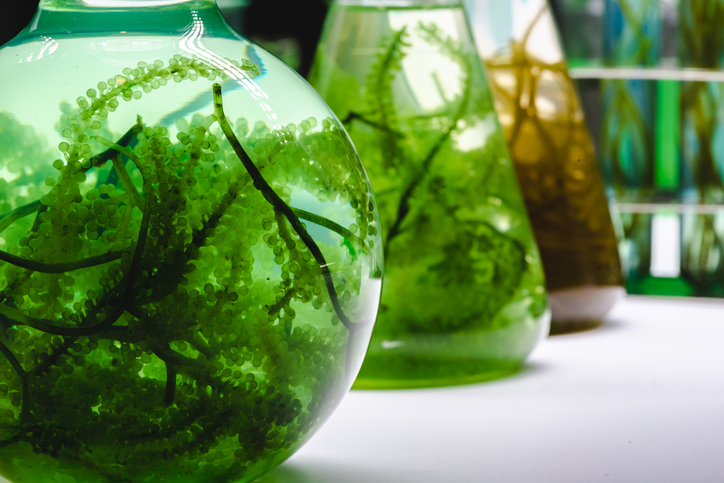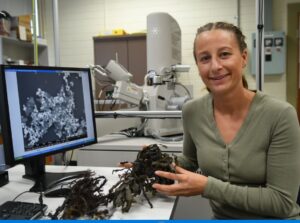
This year the Marine Bioproducts CRC postgraduate training program is opening dozens of industry-led PhD, honours and masters research opportunities for Flinders University and other Australian universities.

Among them is Flinders University PhD candidate Adele Mastroyannis who is leading research on utilising Australia’s unique seaweed resources for developing biomaterials, after receiving a top-up scholarship funded jointly by the Wonderful Capital Biotechnology Group, Flinders University and the MBCRC, which is based at Flinders at Tonsley Innovation District.
“This is a unique opportunity to ensure that my research is of importance to the developing industry and also to become a highly trained leader for the marine bioproducts sector,” says Ms Mastroyannis.
“The health benefits of seaweeds are phenomenal but have not been fully utilised. My long-term goal is to play a defining role in developing Australian marine bioproducts, by connecting industry with research expertise to drive innovation and to guarantee the sustainable future of the emerging industry.”
The Marine Bioproducts Cooperative Research Centre (MBCRC) aims to deploy $270 million of cash and in-kind resources over ten years to fast-track the development of this emerging Australian sector through industry-led research.
Wonderful Capital Biotechnology Group CEO Dr Yifei Xu says: “Marine seaweeds are well known for providing building blocks for new biomaterials and simultaneously, a range of bioactives that are known to promote health.
“The Australian marine bioproducts industry needs to invest in building national talent through industry-embedded research with young researchers such as Adele, to ensure we have future leaders for the industry as it develops,” says Dr Xu, who is working closely with Ms Mastroyannis and other Flinders University experts including Associate Professor Kirsten Heimann, who is also the MBCRC’s Education and Training Manager.
“For Australia to be competitive and recognised globally in the marine bioproducts sector, it needs innovation, excellent science and business aptitude, and increased investment into research and development, which is synthesised in the MBCRC CET program,” says Associate Professor Heimann, who is co-supervising the PhD project at Flinders University.
Research training top-up scholarships require t industry partnership to ensure that the research immediately benefits industry. The MBCRC will only post PhD opportunities that have an industry co-lead and where the project details have been formulated and approved by MBCRC.
To qualify for an MBCRC PhD top-up worth $20,000 per annum, funded by industry, the research provider and MBCRC in a 2:1:1 ratio, candidates must have secured a base scholarship, e.g. APA or equivalent, or a scholarship budget for in an MBCRC-industry research project.
Honours and Masters projects top-up scholarships are $10,000, funded also in a 2:1:1 ratio, as for PhD projects. As these students typically do not hold base scholarships, they must have an outstanding academic achievement record.
For postgraduate research information go to the MBCRC’s Connect Educate Train program then email an abstract to Associate Professor Kirsten Heimann at kirsten@mbcrc.com for further information.

